Overview
There have been encouraging shoots of recovery in the tourism industry, but amid high-profile disruptions at global aviation hubs like London Heathrow and Amsterdam Schiphol this summer, it would be naïve to pretend that all is rosy in the world of international travel. Indeed, McKinsey has suggested that global tourism spending will not return to pre-pandemic levels until 2024 and this still seems a pertinent assumption.
The way people are travelling is changing. The death knell has been struck for the global business meeting and the days of journeying cross-continent for a one-night hotel stay and conference room catch-up are not long for this world. For the companies and establishments that have relied on business travel – and there are many of them – these are understandably worrying times.
We are living in a time of great flux, driven by pandemic recovery, meteoric energy price rises and a global cost of living crisis.
But tourism and hospitality are steadfast sectors that have historically demonstrated strong survival instincts in the face of disasters as diverse as finance, weather and geo-politics. As with other industries part of the focus of The Blended Future, adaptability and flexibility are vital characteristics if the tourism and hospitality sectors are to successfully endure.
To facilitate this, we need new category-defining players that blend hospitality management and destination management to become bastions of expertise and innovation.
KEY THEMES
THIRD SPACES
THE DESIRE FOR MORE FLUID WORKSPACES PROVIDES A HUGE OPPORTUNITY FOR TRADITIONALLY LINEAR BUILDINGS TO BE RESUSCITATED AND REVITALISED.
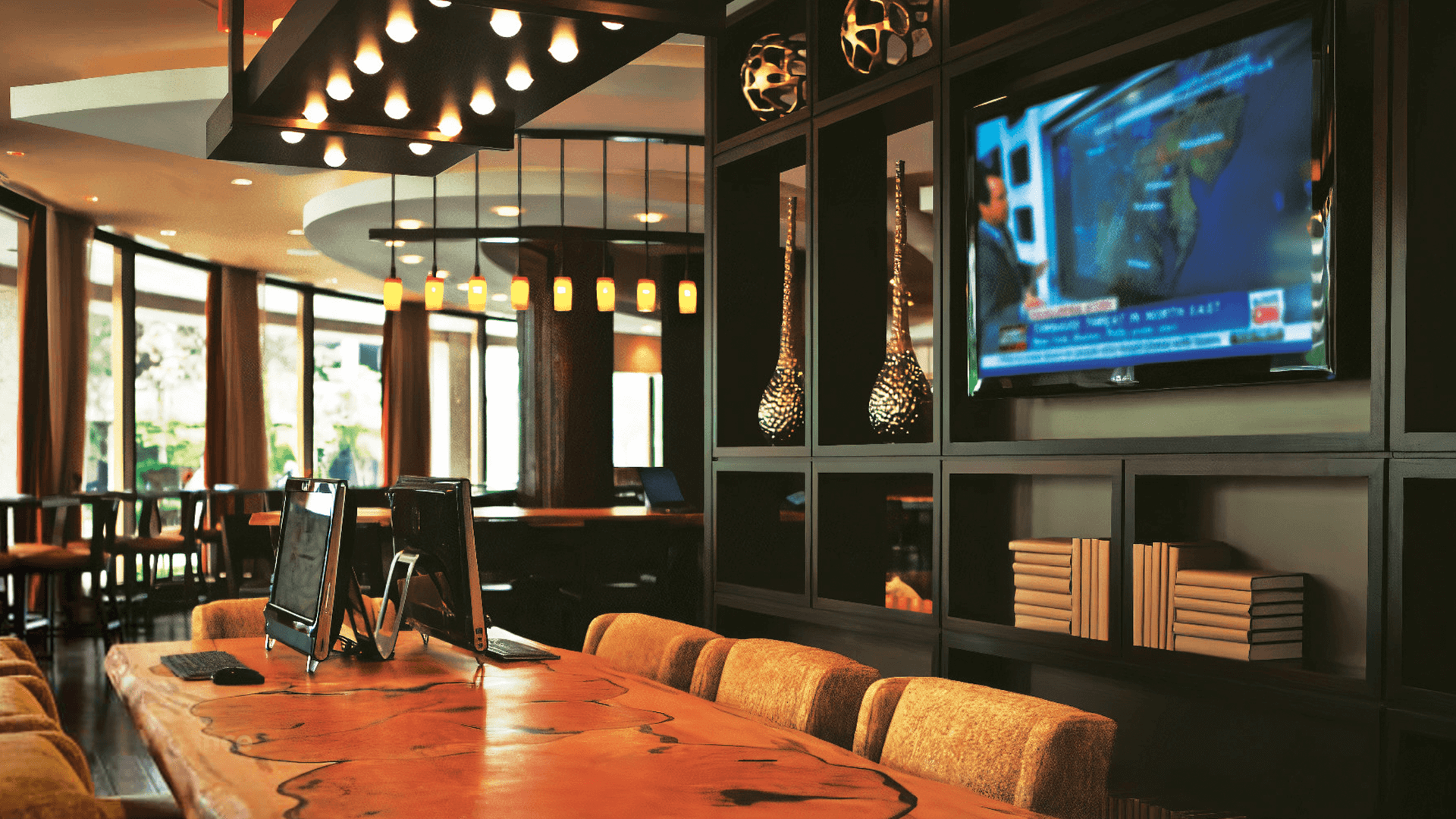
Routines established during the pandemic have changed the ways in which we travel for both work and pleasure. An expedited shift in our cultural and working norms has hastened the need for ‘third spaces’ to provide an alternative environment for those seeking a less binary solution than simply ‘home’ or ‘office’ working.
This desire for more fluid workspaces provides a huge opportunity for traditionally linear buildings like office blocks and hotels to be resuscitated and revitalised.
Creative solutions aplenty exist, and many hotels are already shape-shifting to become more community than corporate-focused. In some instances, inventory will require a dramatic change, with bedrooms sacrificed in favour of larger spaces that can fulfil social, health and co-working purposes.
For those who do genuinely still need to travel for business, hotels will increasingly offer dedicated co-working spaces, possibly entire floors, that will be in sharp contrast to the traditional, tokenistic ‘business centres’. Identikit hotel gyms will be replaced with in-room machines for those seeking private workouts or more expansive health and wellness facilities for those who favour community fitness. Hotels will be less about bed and breakfast, and more about freedom to move and experiential engagement.
RURAL RETREATS
THE DESIRE TO (RE)CONNECT WITH NATURE WILL REMAIN A TOP PRIORITY FOR TRAVELLERS
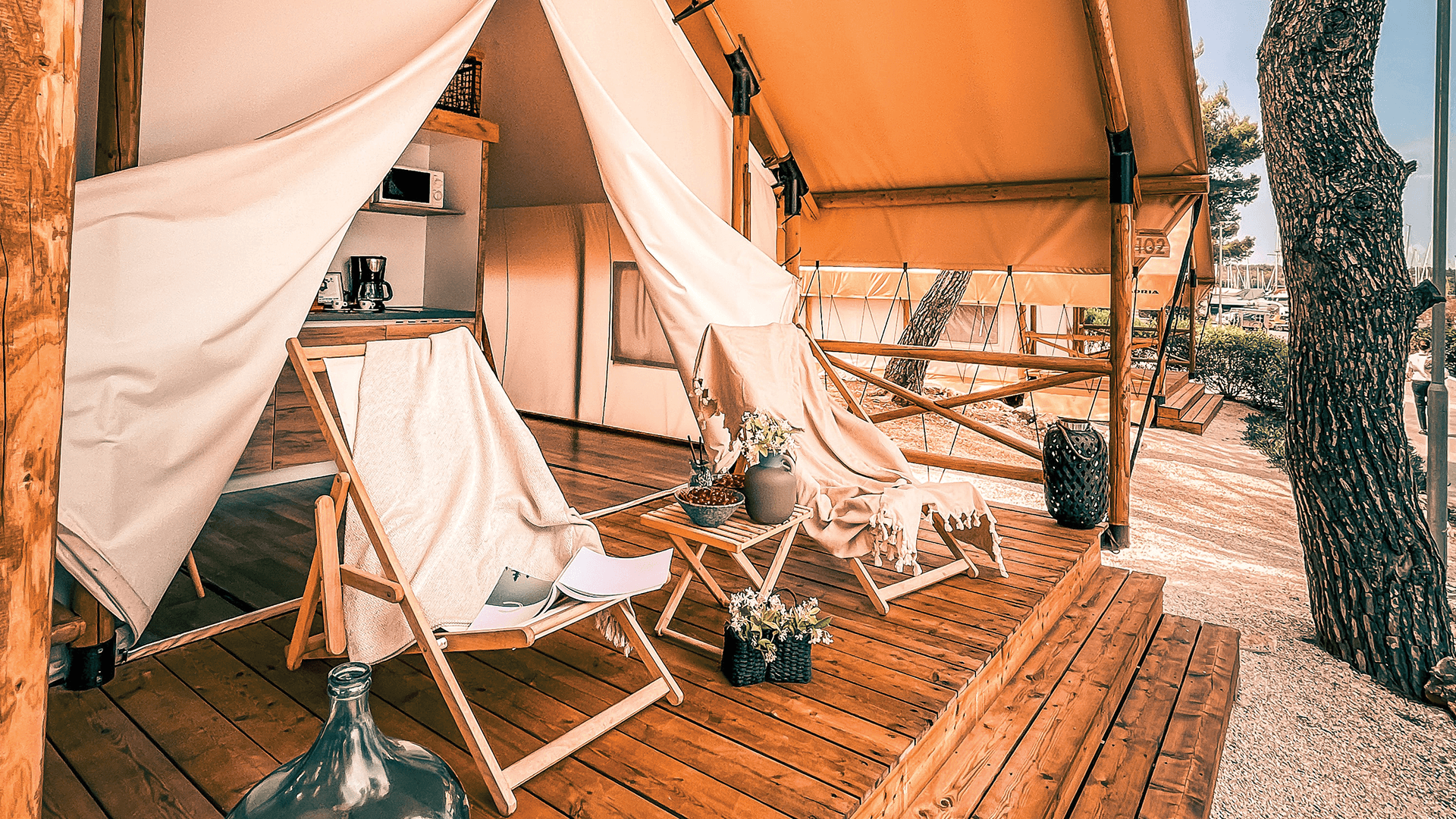
After such widespread experience of enforced indoor confinement, it is little surprise that the desire to (re)connect with nature has emerged as, and will remain, a top priority for travellers. Experiential and immersive activities continue to grow in popularity, beyond their traditional Millennial and Gen Z audiences, while the global glamping market is predicted to be worth $3.9 billion by 2027.
The much-anticipated great urban exodus has not materialised, certainly not as acutely as many expected, but a penchant for the great outdoors has. Whether wellness resorts inspired by the sectors move firmly into the mainstream or agrotourism escapes are designed to match society’s increasing focus on sustainability, it is an exciting time to be a rural entrepreneur.
Farmers, vintners and landowners are creating more diverse portfolios and revenue streams across the tourism sector – targeting all manner of potential customers from money-conscious campers and day-trippers to those seeking privacy and solitude in luxury boltholes brimming with appealing add-ons.
For many, such rural retreats will likely represent domestic staycations that shun air travel in favour of contributing positively towards the preservation of their country’s non-urban communities.
DIGITAL EXPATS
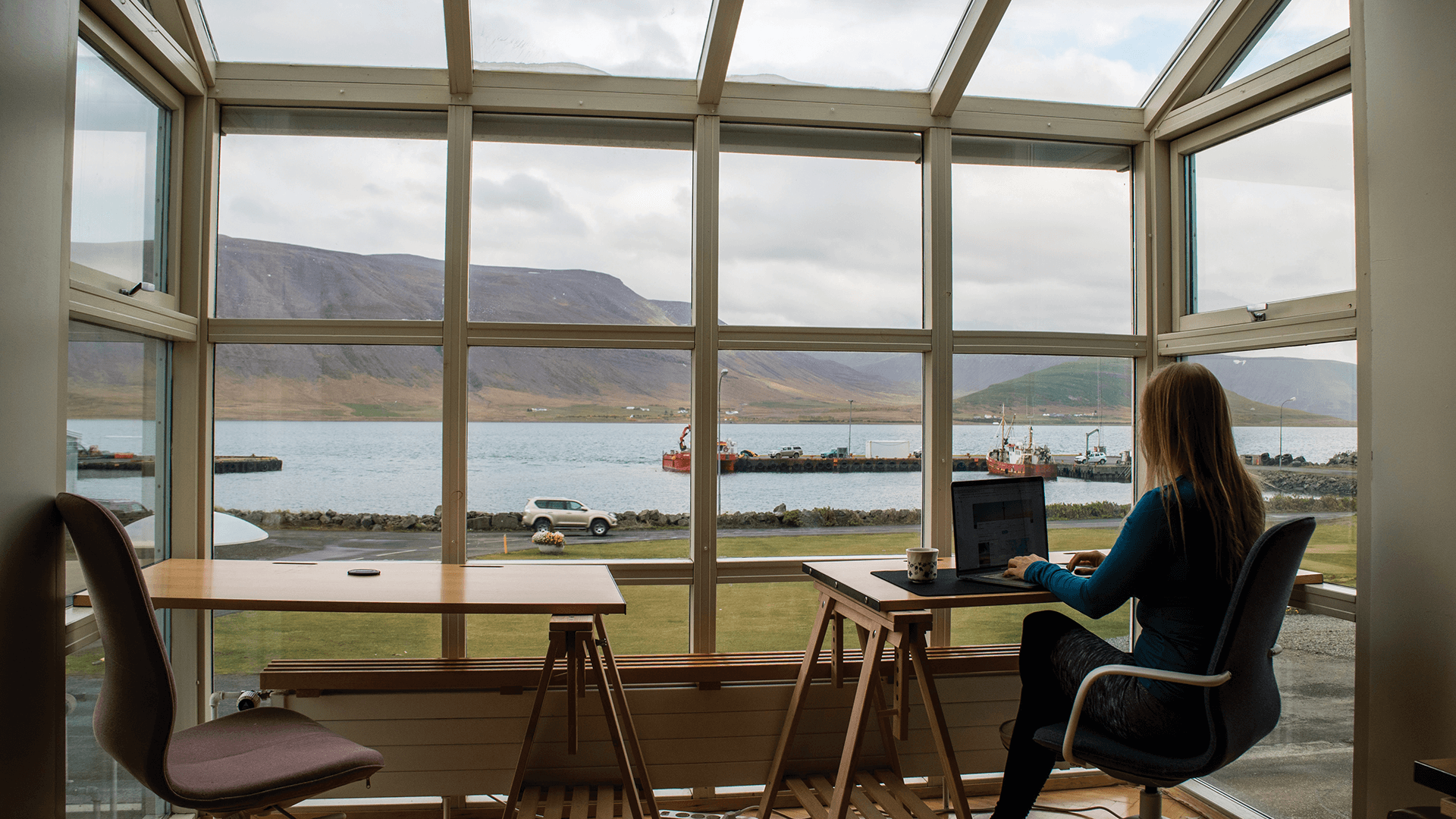
Airbnb CEO Brian Chesky claimed earlier this year that more than one million people visited his company’s job page after it announced the introduction of a permanent ‘work from anywhere’ policy. The prospect of committing to truly flexible working arrangements remains a daunting one for many companies, but there is clearly a growing appetite among employees, particularly Millennials, for this level of freedom.
Importantly, this does not automatically mean that there is a desire to hop from one country to the next in something akin to a perma-gap year; people seeking a change in environment are still happy to do so with a level of longevity in mind.
HSBC Expat’s 2021 Expat Explorer survey found that 80% of respondents across 46 countries were planning to stay in their host country for at least another 12 months, and so it seems there could be an evolution from Digital Nomads to Digital Expats afoot.
Governments around the world are recognising the economic potential of these individuals who can share knowledge and build bridges locally – creating new flows of information and resources. They are also often determined to maximise their time in a location, pumping the physical currency made from their digital jobs into local economies.
From Colombia to Italy and Indonesia to Costa Rica, easy-access annual (at least) visas are on the rise as these freelancers, entrepreneurs and other Digital Expats spend money on quality of life and quality of experience.
PROJECTS TO INSPIRE
HIPCAMP, UNITED STATES
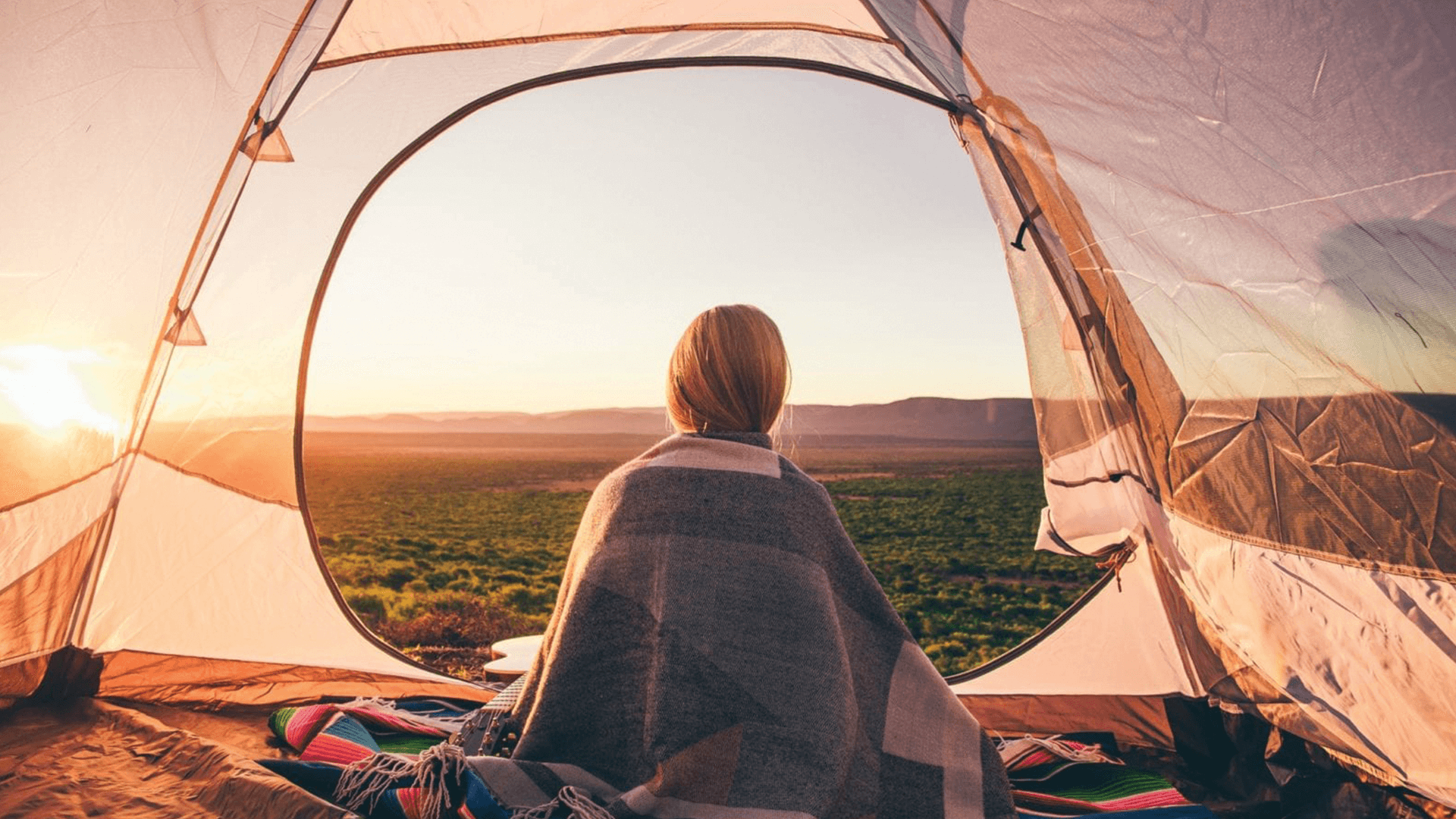
The world’s biggest provider of outdoor stays, Hipcamp offers people the opportunity to choose from half a million campsites across the US, Canada, Australia and the UK. It entered the latter market in May 2022 after a takeover of British brand Cool Camping, bolstering its place as industry leader in the growing outdoor holiday movement.
Founder Alysso Ravasio has previously been praised by Outside Business Journal for her “vision, ethics, measurable impact and the potential to inspire others” and, heading into its 10th year of operation, Hipcamp has already unlocked more than 1.6 million hectares of private land around the world to help ease pressure on existing campsites and connect people with outdoor experiences.
CARLYLE & CO., HONG KONG

Launched by the Rosewood Hotel Group in 2021, Carlyle & Co. is a landmark private members’ club in Hong Kong that occupies 25,000 sq ft in the city’s Victoria Dockside. It boasts one of the largest outdoor terraces in the city and promises ‘a more culturally and intellectually rewarding way of life’ for its members, who have access to standalone dining and bar concepts. Carlyle & Co. claims to be more accessible too, insisting that members are admitted based on their interests and personalities, rather than wealth and social status.
FIVE-YEAR REMOTE WORKING VISA, INDONESIA
INDONESIA’S TOURISM MINISTER ANNOUNCES THAT BALI WILL OFFER A FIVE-YEAR, TAX-FREE VISA FOR REMOTE WORKERS.
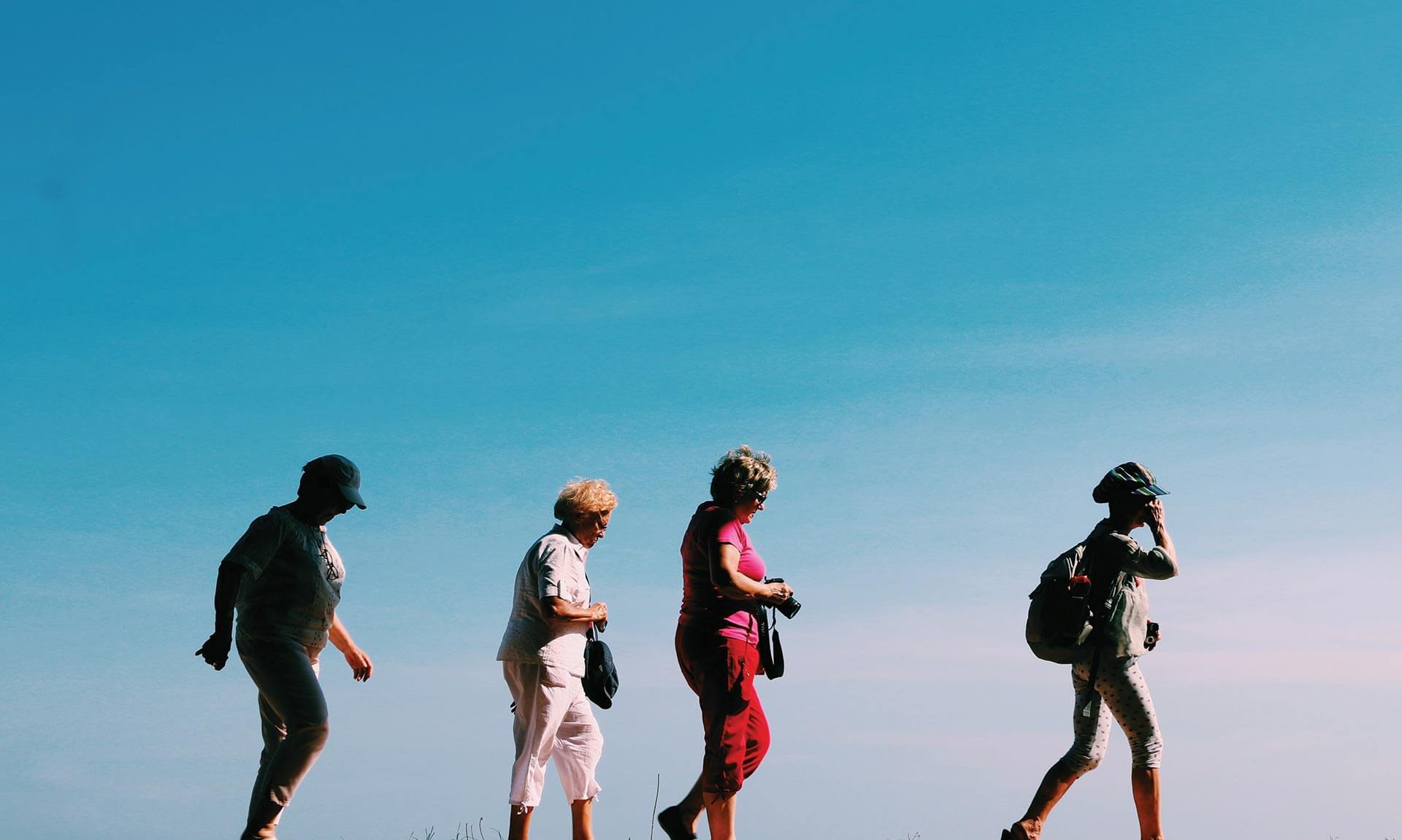
Bali has long been viewed as a workcation nirvana and after its thriving tourism industry was totally decimated by COVID-19, the island is now anticipating a major boom after the Indonesian government recently unveiled plans for a potentially landscape-shifting new visa.
Determined to transform Digital Nomads into Digital Expats, Indonesia’s tourism minister, Sandiaga Uno announced that the Asian archipelago will offer a five-year, tax-free visa for remote workers – easily the world’s most expansive policy to date.
FAIR BNB, ITALY
With a focus on ‘community-powered tourism’, Fair BnB is a booking platform that favours sustainable and intimate travel experiences and transfers 50% of its fees to community projects in the host area, aiming to redistribute wealth and create jobs in a bid to align with the UN’s Sustainable Development Goals.
Fair BnB has the institutional approval of the European Commission, including financial investment, and recently topped a ranking of the ethical tourism and environmental credentials of 29 travel booking platforms by alternative consumer organisation, Ethical Consumer.
